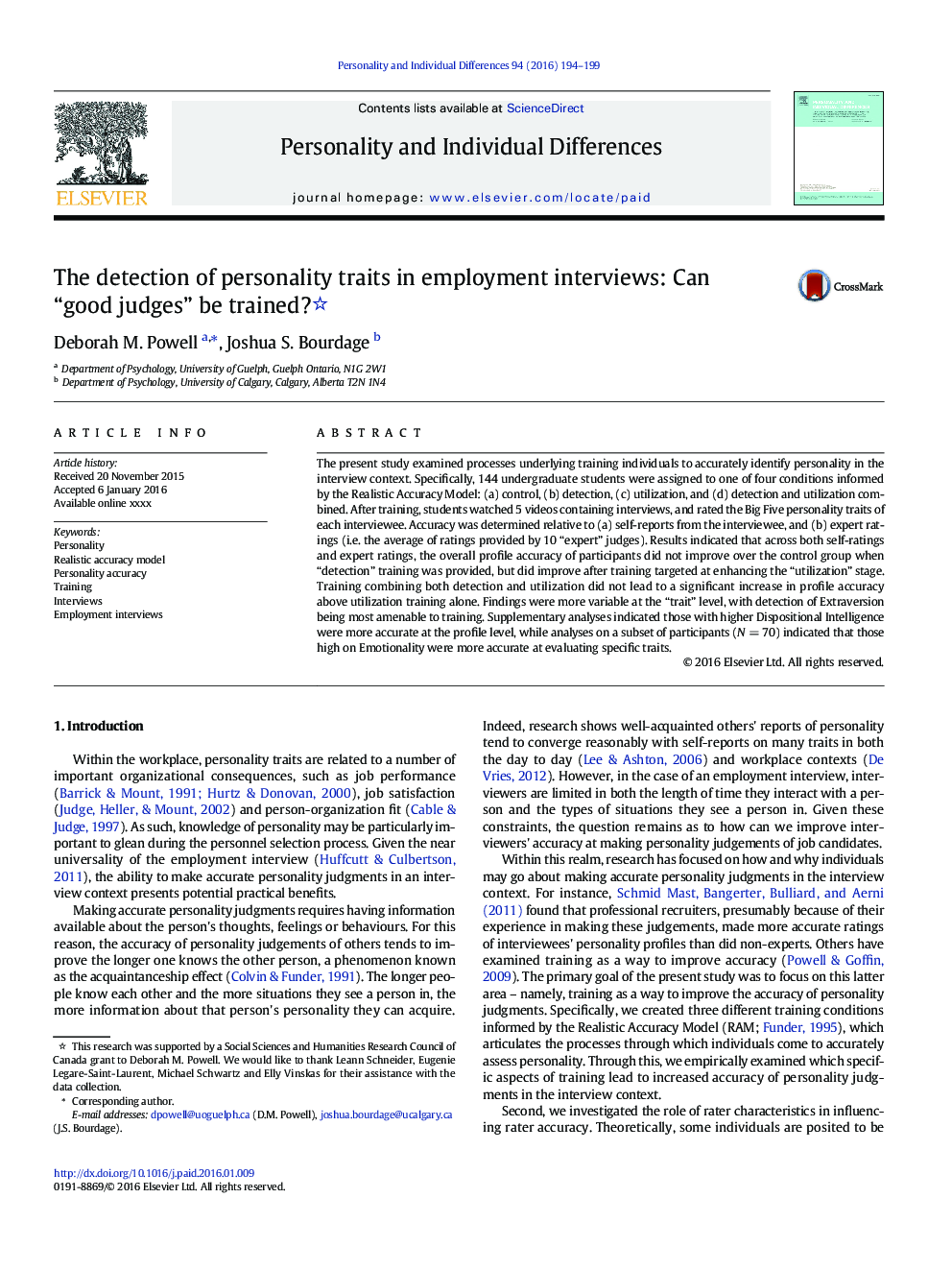| Article ID | Journal | Published Year | Pages | File Type |
|---|---|---|---|---|
| 7250376 | Personality and Individual Differences | 2016 | 6 Pages |
Abstract
The present study examined processes underlying training individuals to accurately identify personality in the interview context. Specifically, 144 undergraduate students were assigned to one of four conditions informed by the Realistic Accuracy Model: (a) control, (b) detection, (c) utilization, and (d) detection and utilization combined. After training, students watched 5 videos containing interviews, and rated the Big Five personality traits of each interviewee. Accuracy was determined relative to (a) self-reports from the interviewee, and (b) expert ratings (i.e. the average of ratings provided by 10 “expert” judges). Results indicated that across both self-ratings and expert ratings, the overall profile accuracy of participants did not improve over the control group when “detection” training was provided, but did improve after training targeted at enhancing the “utilization” stage. Training combining both detection and utilization did not lead to a significant increase in profile accuracy above utilization training alone. Findings were more variable at the “trait” level, with detection of Extraversion being most amenable to training. Supplementary analyses indicated those with higher Dispositional Intelligence were more accurate at the profile level, while analyses on a subset of participants (NÂ =Â 70) indicated that those high on Emotionality were more accurate at evaluating specific traits.
Keywords
Related Topics
Life Sciences
Neuroscience
Behavioral Neuroscience
Authors
Deborah M. Powell, Joshua S. Bourdage,
